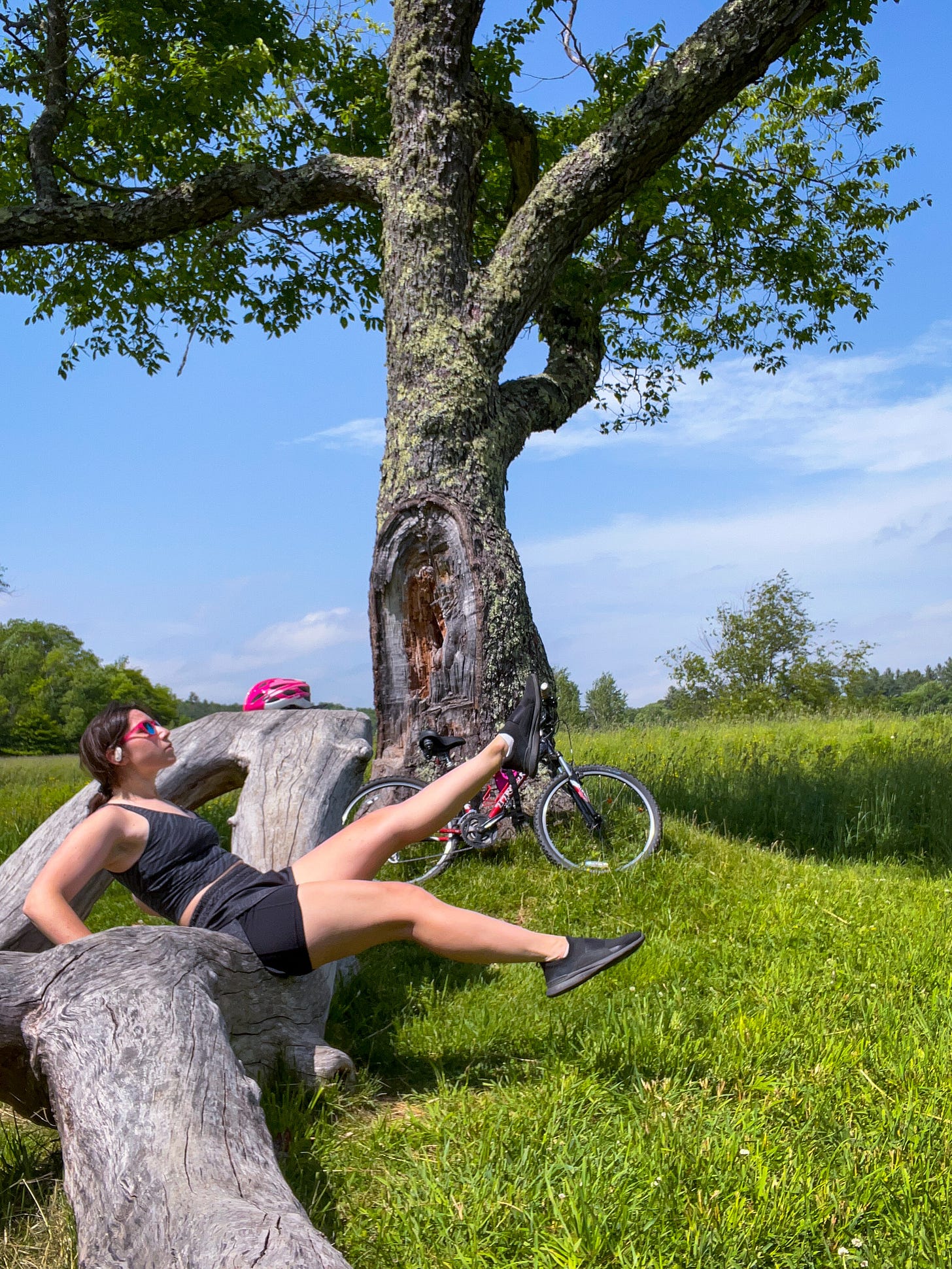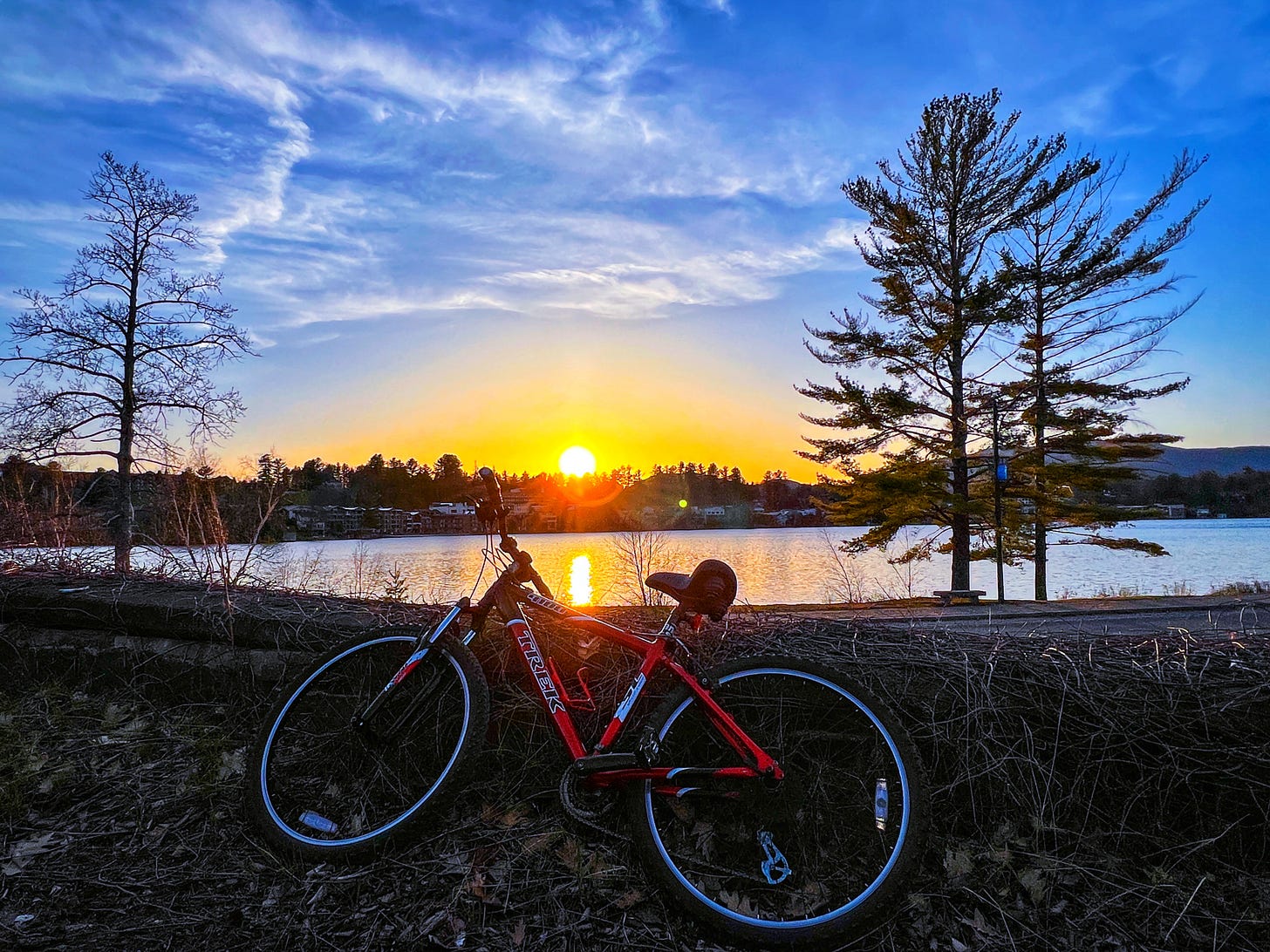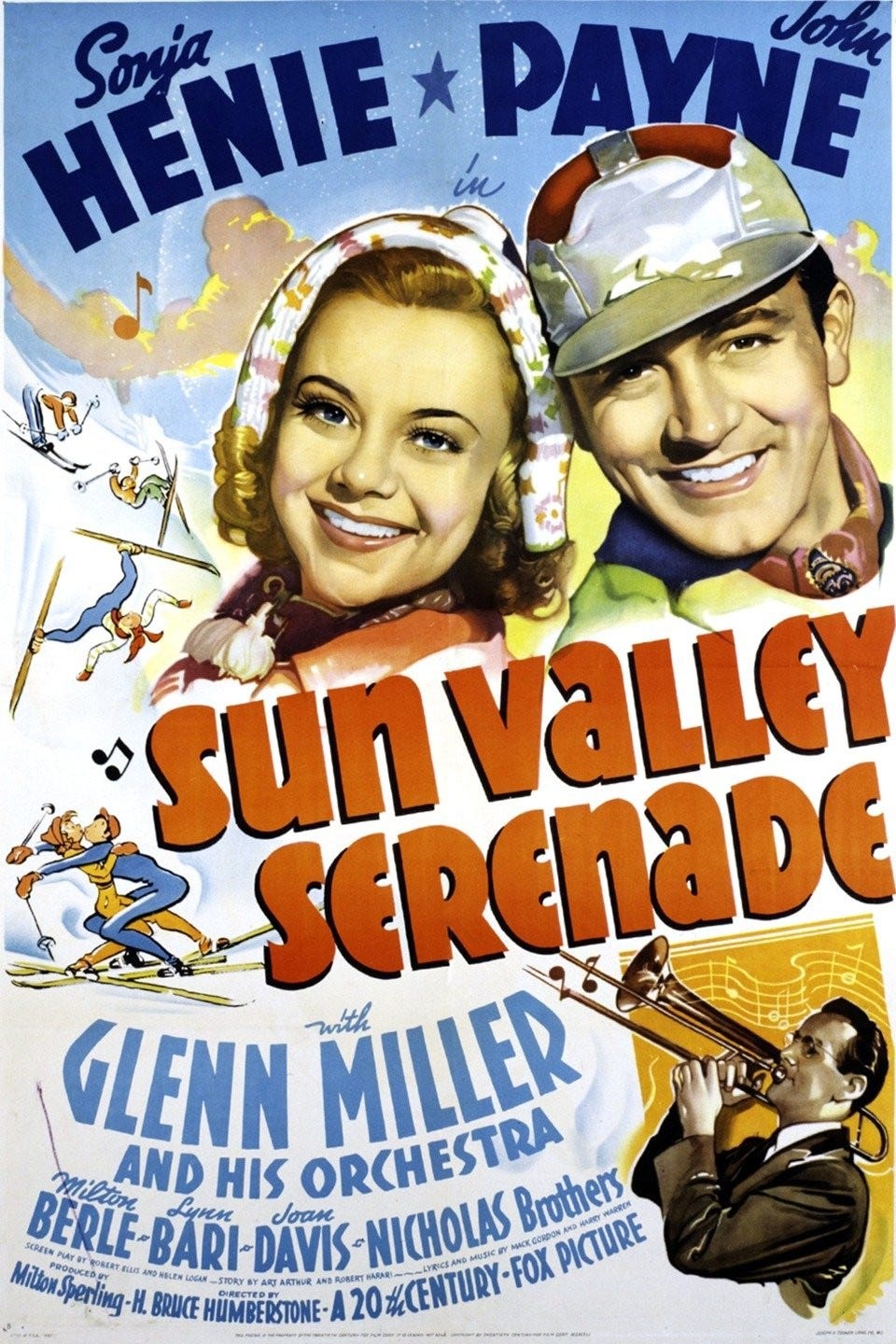What To Do If You Can't Skate
Advice for my fellow skaters. Plus, recommendations for an underrated movie classic.

We all have moments in our skating career when, for one reason or another, we can’t skate.
Sometimes it’s financial. Occasionally, it’s that you don’t have time. Other times, it’s an injury.
But every time tends to bring a fair amount of anxiety or loss of self, especially if you make skating a big part of your personality as I do (I’m writing a Substack called Lake Placid Skater, after all).
So what should you do?
Here are some ways I cope when I can’t skate.
Work on your other hobbies.

Just because you are losing something for now doesn’t mean you can’t see it as an opportunity.
After I got injured last summer and couldn’t walk well for two weeks, I felt despondent because I thought I needed to keep moving. Sitting still would, I feared, mean getting out of shape after I had spent much of the summer trying to get back INTO shape.
But then I switched my perspective and realized I could focus on other interests without skating (inline skating, biking, or even strolling around the lake).
I wrote a lot more and discovered that I enjoyed it. I started journaling. I found YouTube videos. I read much more than I used to, returning to a favorite childhood diversion.
Use the time to develop other activities so that if you have to take another hiatus, you will have different hobbies waiting for you.
See it as a temporary rest period.

Permit yourself to watch Netflix, sleep more, take long walks, or do other “unproductive” activities that replenish you. Then you’ll appreciate skating more when you do return.
Stay involved (if you can).

If you miss skating, go to the rink, talk to your skating friends, and catch up with your coach. If you can’t go there physically, text or call them.
You can also stay involved in the sport as an official or a coach. Being in the skating world in a different capacity can help you feel fulfilled until you can get on the ice again.
Maintain your fitness as much as possible.
The worst thing you can do is let your fitness go.
Trust me, I’ve been there, and it was tough to get back to baseline fitness.
If you aren’t injured:
Engage in other activities you enjoy. Whenever I couldn’t skate in the past, I increased my biking, hiking, trail running, CrossFit, and other activities that maintained my aerobic and anaerobic fitness.
Stretch!
Build movement into your day. If you have a desk job and can do it, get up periodically and do squats, stretch, or take a short walk. Little bits of movement can help more than you think.
Disclaimer: Although I have a M.S. in Fitness and Wellness Leadership, I am not a doctor. If you are injured, please consult your doctor before embarking on any fitness or exercise program.
However, these types of exercise are generally pretty “safe” when recovering from an injury (depending on the injury).
Swimming/hydrotherapy
Walking
Hiking (gentle, without too much incline, especially if you have a lower-body injury).
Stretching
Yoga
Cycling (this was the best for me because when my knee would hurt more while walking, cycling had a lower impact).
I recommend getting outside in nature to exercise as much as possible, although I realize this may not be as easy where you live.
Find a park or other green space if you can, and also be careful to ensure you’re not working out in excessive heat or other dangerous conditions.
When you get back on the ice, be gentle with yourself.
Don’t expect yourself to return to the ice and start doing what you did before. There will be an adjustment period, as there always is if you’re not skating for an extended period.
You must “wake up” your muscle memory and re-teach your body to perform specialized skills. That can take time.
So be kind to yourself.
Set small goals for each practice. For example, you can set an intention to center one spin or practice a specific skating skill until it feels more manageable.
And don’t judge yourself by how you were skating before. Accept what your skating is now and do your best to improve gradually.
This goes double if you were injured.
In that instance, be mindful of your limitations and take them slow.
For example, after two weeks of limited mobility last summer, I started slowly walking short distances. Then, I rode my bike equally carefully. Finally, I worked back up to inline skating and on-ice practice.
If a particular movement hurts, don’t do it.
If you still don’t feel ready for a specific step, don’t do it.
Listen to your body - you know it better than everyone else.
Lake Placid Skater Recommends
Despite writing Lake Placid Figure Skating - A History and directing an ice show where Olympian Karen Courtland Kelly performed as Sonja Henie (yes, it was as amazing as it sounds), I had only ever seen clips of Sonja Henie’s performances.
But a few weeks ago, Sun Valley Serenade was on Turner Classic Movies overnight, so I watched it until 4 am.
Here’s a good synopsis:
As a surefire way to receive good press, bandleader Phil Corey (Glenn Miller) and his ensemble decide to adopt a war refugee. When it turns out that their adoptee isn’t a child, but a pretty Scandinavian woman named Karen Benson (Sonja Henie), it leads to a flirtatious relationship with the group’s pianist, Ted Scott (John Payne), who is already involved with singer Vivian Dawn (Lynn Bari). As the band heads to snowy Idaho for a gig, romantic drama, skiing, ice skating, and musical numbers ensue.
After years of reading that Henie’s acting talent was questionable, I thought she did well in the film, albeit not displaying much range. She plays Karen as a perpetually sunny Norweigan stereotype, casually racing up and down black diamond trails in Sun Valley in pursuit of Ted (future Olympian Gretchen Fraser handled those scenes) and putting on impromptu figure skating performances in an attempt to win his heart (while Milton Berle’s character ‘Nifty’ notices, Ted is otherwise engaged).
It’s typical silly forties fare, punctuated by performances from not only Henie but by Glenn Miller (yes, that Glenn Miller), Dorothy Dandridge, and the Nicolas Brothers.
Henie’s final performance, which includes scores of skaters with Henie as a centerpiece, is well reflected in the smooth surface of the black ice that would become standard for Henie pictures. It’s incredible that decades ago, a single figure skater could headline Hollywood pictures and sell out Madison Square Graden with her tour. Henie was indeed one of a kind.
So come for the skating, stay for the sometimes corny but enjoyable musical numbers, and for Henie’s performances on the ice and off. Although she was not an actress by trade, her performance was passable, and her charisma and nimble skating made the film more enjoyable than I expected.
Thanks as always for reading! :)





